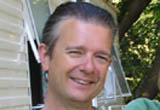 Medical involvement in torture looks like a category error. Medicine has to do with the healing of bodies and minds; torture with their destruction. It is now forty years since the World Medical Association (WMA) adopted the Declaration of Tokyo on Guidelines for Physicians Concerning Torture. It was necessary then. The tragedy is how necessary it remains.
Medical involvement in torture looks like a category error. Medicine has to do with the healing of bodies and minds; torture with their destruction. It is now forty years since the World Medical Association (WMA) adopted the Declaration of Tokyo on Guidelines for Physicians Concerning Torture. It was necessary then. The tragedy is how necessary it remains.
The Declaration of Tokyo is written in declamatory prose and among its many blessings is a lack of ambiguity:
“The physician shall not countenance, condone or participate in the practice of torture…”
“The physician shall not provide any premises, instruments, substances or knowledge to facilitate…torture…”
“The physician shall not use nor allow to be used…medical knowledge or skills, or health information specific to individuals, to facilitate or otherwise aid any interrogation, legal or illegal…”
“The physician shall not be present during any procedure during which torture…is used or threatened…”
The deep sources of the Declaration probably lie in the Second World War, in Nazi abuses and the revelations of the Nuremberg trials. Among the more proximate sources was Northern Ireland in the early seventies and medical unease about the involvement of doctors in the interrogation of suspected Irish Republican Army members. Here, as so often, bedrock ethical principles were liable to warping under political pressure. Instead of, to use the WMA’s language, maintaining “the utmost respect for human life…(and)…the laws of humanity,” there was a danger that medical skills would be co-opted to darker political ends. It was to draw a bright line here that the Declaration was fashioned. Later it was buttressed by the Declaration of Malta prohibiting forcible feeding and the Declaration of Hamburg supporting doctors who refuse to participate in torture.
Although it is a big claim, and the evidence is probably mixed, I think I agree with Dr Deau, current President of the WMA, when he says that these declarations have made the world a better place. But fast forward forty years from its drafting and you could be forgiven for asking, how much? We know that states across the globe still torture with impunity. Amnesty International’s Stop Torture campaign has shown that in places like Mexico, torture is endemic and all too often doctors, at best, turn a blind eye.
The “war on terror” has also taken a toll. We now know that doctors and psychologists were implicated in the torture and degrading treatment of detainees in Guantanamo Bay. Medical information was passed to military and CIA personnel to facilitate interrogation.
When political power comes up against moral or legal prohibition, time and again plain language is subject to corrupting interpretation. “Enhanced interrogation techniques” blur the boundary between legitimate intelligence and degrading treatment. The donning of military uniforms was said to dilute doctors’ ethical obligations. A report in April of this year accused the American Psychological Association of collaborating with the Bush administration to bring its ethical codes more in line with the requirements of interrogation.
There is a legitimate medical role in caring for those who have been subject to torture. Doctors working in custodial settings may be among the first to identify survivors. But we know that doctors working in closed punitive institutions can be subject to dual loyalties, obligations to patients in tension with duties, real or perceived, to the employing institutions. Closed institutions can also put ordinary professional obligations under intense pressure. Doctors and other health professionals are often isolated. Speaking out about abuse can be career, or even, in extreme, life-limiting. All the more reason why, in so far as it is available, clarity about moral obligations is needed.
Perhaps it is my age, but I think an unimpassioned observer could be forgiven for thinking that the world is becoming more unstable. The pressure to blur vital moral boundaries is likely to increase. So a good time to remember the Declaration of Tokyo. And for health professionals and their associations to redouble their commitment to it.
Julian Sheather is ethics manager, BMA. The views he expresses in his blog posts are entirely his own.
